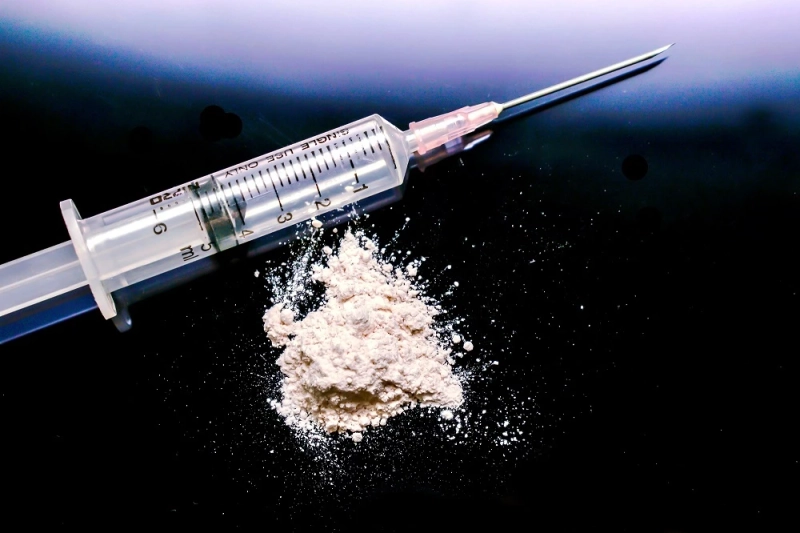Sodium chloride, commonly known as table salt, is a versatile compound that extends its utility beyond culinary purposes. In the medical field, sodium chloride plays a vital role in various applications and treatments. This article explores the significance of sodium chloride, its contributions to healthcare and its effect on the human body.
It is a crucial mineral that the human body needs to operate correctly. However, like many things, moderation is key in sodium chloride consumption. Here are some key points to consider:
- Electrolyte Balance: It plays a vital role in maintaining electrolyte balance in the body. It helps regulate fluid levels, nerve function, and muscle contractions.
- Sodium Requirements: The body requires a specific quantity of salt to operate at its best. On the other hand, consuming too much salt can result in health problems, including high blood pressure, which raises the risk of heart disease and stroke.
- Dietary Guidelines: The World Health Organization (WHO) recommends limiting sodium intake to less than 2 grams daily for adults, roughly equivalent to 5 grams of salt. Different countries may have specific dietary guidelines regarding sodium intake, so it\'s essential to be aware of the recommendations in your region.
- Sources of Sodium: While table salt is a common source of sodium, it\'s worth noting that many processed and packaged foods already contain high sodium levels. These include items like fast food, canned soups, snacks, and processed meats. Read food labels carefully and seek low-sodium products wherever available.
- Individual Health Considerations: Sodium requirements vary depending on age, underlying health conditions, and physical activity levels. Some individuals, such as those with certain medical conditions like kidney problems or hypertension, may need to follow specific dietary restrictions regarding sodium intake.
- Balance and Moderation: It\'s essential to strike a balance and consume sodium chloride in moderation. A well-balanced diet that includes fresh fruits, vegetables, whole grains, lean proteins, and limited processed foods can help maintain a healthy sodium intake.
Does the excess rate of sodium chloride harm the body?
Consuming excess sodium chloride (table salt) can negatively affect the body and contribute to various health issues. Here are some potential harms of excessive sodium chloride intake:
- High Blood Pressure: One of the major concerns associated with excess sodium chloride consumption is an increased risk of high blood pressure (hypertension). High sodium levels in the blood can lead to fluid retention, which puts extra strain on the blood vessels and heart, potentially leading to hypertension.
- Fluid Imbalance: Consuming excessive sodium chloride can disrupt the balance of fluids in the body. It can lead to an increased fluid volume, which can strain the circulatory system and affect the functioning of organs, especially the kidneys.
- Kidney Function: Excess sodium chloride intake can burden the kidneys as they filter and eliminate excess sodium from the body. It may lead to complete kidney damage or impair kidney function.
- Bone Health: High sodium intake has been associated with increased calcium excretion in the urine, which can negatively affect bone health.
- Increased Thirst: Consuming excessive sodium chloride can increase thirst and increase fluid intake. This can exacerbate fluid retention and strain on the cardiovascular system.
Highlighting its role in intravenous solutions, wound care, and more.
- Intravenous Solutions: It is often referred to as saline solutions and is widely used in medical settings. These solutions contain a specific concentration of sodium chloride dissolved in water, providing a balanced electrolyte composition that closely resembles the body\'s fluids. Saline solutions serve multiple purposes:
- Rehydration: Intravenous administration of sodium chloride helps replenish fluid and electrolyte levels in cases of dehydration caused by illnesses, surgery, or excessive fluid loss.
- Medication Administration: Saline solutions are a safe medium for diluting and administering certain medications, facilitating their delivery into the bloodstream.
- Fluid Replacement: In critical situations where blood loss or shock occurs, saline solutions are administered to maintain blood volume and stabilise the patient.
- Wound Care: It finds application in wound care due to its various properties that promote healing and prevent infection:
- Cleansing Solution: Saline solutions are used to irrigate and cleanse wounds, helping remove debris, bacteria, and foreign particles while maintaining a moist wound environment conducive to healing.
- Sterile Dressings: Sodium chloride moistens sterile dressings or gauze pads, preventing them from sticking to the wound and ensuring a painless dressing change.
- Respiratory Treatments: Its solutions are utilised in respiratory therapies to alleviate symptoms and maintain respiratory health:
- Nebulization: A nebulizer transforms sodium chloride solution into a fine mist that can be inhaled to alleviate respiratory conditions such as asthma, bronchitis, or cystic fibrosis.
- Airway Hydration: In hospital settings, sodium chloride solutions are administered via oxygen masks to provide moisture and prevent dryness of the airways, especially for patients on mechanical ventilation.
- Diagnostic and Laboratory Applications: It plays a role in diagnostic procedures and laboratory testing:
- Saline Solutions for IV Flush: Its solutions are used for flushing intravenous lines before and after administering medications, ensuring proper delivery and preventing blockages.
- Laboratory Reagent: Sodium chloride for injection is commonly used as a reagent and diluent in various laboratory tests and experiments.
Conclusion: It is an invaluable compound in the medical field, with diverse applications ranging from intravenous solutions for hydration and medication administration to wound care and respiratory treatments. Its properties and compatibility with the human body make it a reliable and essential component in healthcare settings. Understanding the role of sodium chloride helps medical professionals provide effective treatments and maintain patient well-being, highlighting its significance in the medical field.


